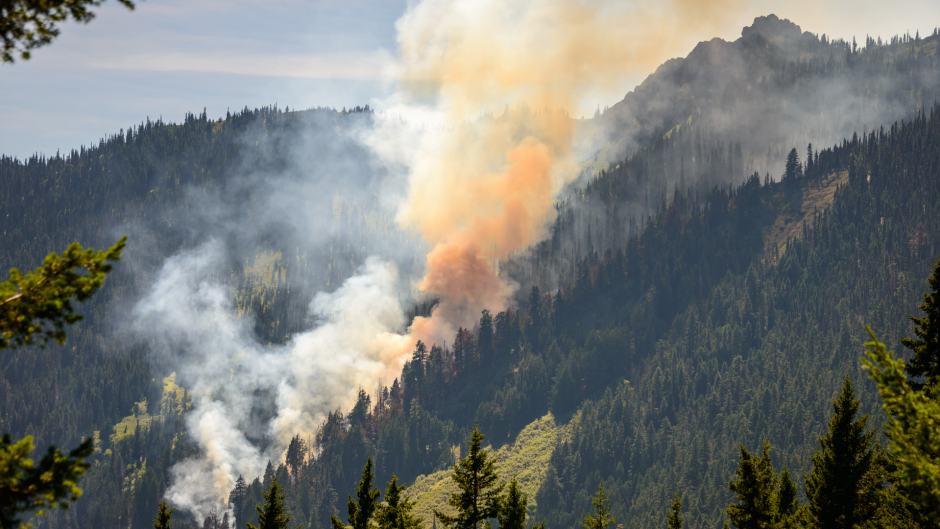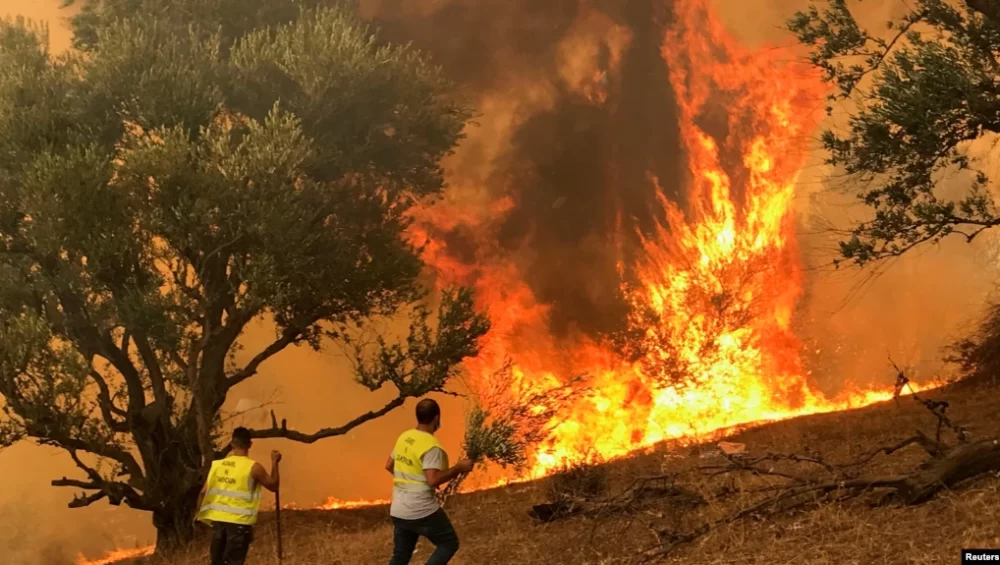The punishing heatwave that has triggered deadly wildfires across southwest Europe is poised to break temperature records in France, the United Kingdom and North Africa early this week, confirming scientists’ warnings that Western Europe has become a heatwave “hot spot”.
Thousands of people in Portugal, Spain, France, and Morocco have been evacuated from their homes as firefighters’ tackle wildfires caused by this week’s heatwave, which has brought extreme temperatures of more than 45C (113F) to parts of Europe and North Africa.
One person has died and at least 135 people have suffered mainly minor injuries since wildfires began in Portugal last week. A “state of contingency” has been in effect since Sunday, and about 800 people have been evacuated from their homes, according to the country’s Civil Protection Authority.
By Thursday, Portugal had registered 28 active fires, with more than 2,000 firefighters on the ground.
France was bracing on Monday for the peak of the heatwave that is currently sweeping across Western Europe, causing devastating forest fires in the south-western Gironde region and across the Iberian Peninsula.
Britain, meanwhile, was on course for its hottest day on record with temperatures forecast to hit 40°C (over 110 Fahrenheit) for the first time and the weather service warning of a “risk to life”.
Meteorologists have said that the latest bout of extreme heat could match or even surpass the record heatwave that was blamed for 70,000 deaths – including 15,000 in France alone – in the blistering summer of 2003.
It comes on the heels of an earlier, unseasonal heatwave that broiled parts of southern Europe in mid-June, aggravating Italy’s worst drought in 70 years.

Searing heat and raging fires
Western Europe’s latest heatwave moved northeast on Monday after pummelling Portugal and Spain, where exceptional temperatures were recorded last week.
The town of Pinhão in northern Portugal reported temperatures of 47°C on Thursday, a record for July, while temperatures exceeded 41°C in the capital, Lisbon.
Most of the country remained on high alert for blazes on Monday after wildfires raged across the tinder-dry countryside for several days, killing two people and destroying 13,500 hectares of forest.
‘Human influence’
The current heatwave looks set to shatter temperature records set 19 years ago – including in Britain, where the Met Office has issued its first-ever “red alert” for exceptional heat.
“We hoped we wouldn’t get to this situation but for the first time we are forecasting more than 40°C in the UK,” said Nikos Christidis, a Met Office scientist, warning that record temperatures will put even healthy people at risk.
“In a recent study we found that the likelihood of extremely hot days in the UK has been increasing and will continue to do so during the century,” Christidis told the Associated Press, pointing to a direct link between human-induced climate change and the likelihood of heat waves occurring in the coming years.
The risk of reaching 40°C “could be ten times more likely in the current climate than under a natural climate that would not be affected by human influence”, he added.
Source:
BBC, Reuters, the Associated Press, and Agence France-Presse






